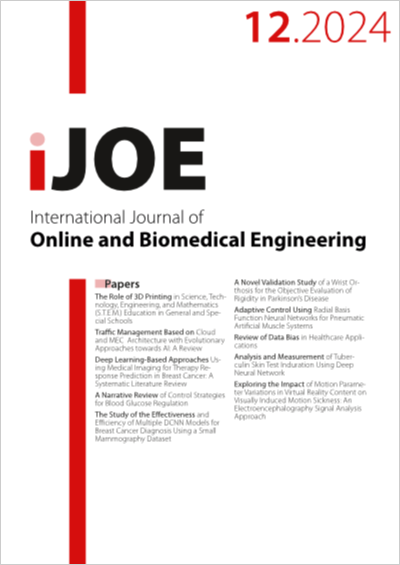Deep Learning-Based Approaches Using Medical Imaging for Therapy Response Prediction in Breast Cancer: A Systematic Literature Review
DOI:
https://doi.org/10.3991/ijoe.v20i12.49709Keywords:
deep learning, therapy response prediction, medical image, breast cancerAbstract
The prediction of response to breast cancer therapy involves assessing the effectiveness of treatment by comparing biomarker levels before and after treatment. Deep learning (DL) models can provide a non-invasive and early way to evaluate the response to therapy based on medical imaging analysis. We conducted this systematic review to investigate the current DL based methods for predicting breast cancer therapy response using medical imaging. This review included 19 studies based on the PRISMA methodology. Some selected studies personalized the Convolutional Neural Network (CNN) architecture to improve its performance in handling medical images, while others used pre-trained models. The accuracy rates range from 0.73 to 0.90, and the Area Under the Curve (AUC) reaches 0.98. Our study’s findings suggest that the performance of these approaches varies depending on various medical imaging modalities, the nature of the DL architecture used, and the fusion of training data sources. However, several challenges related to their explainability and generalizability arise. Therefore, it is necessary to develop larger datasets and broaden the scope of current studies to include multi-center studies.
Downloads
Published
How to Cite
Issue
Section
License
Copyright (c) 2024 Laila El Jiani, Sanaa EL FILALI, El Habib BENLAHMAR, Ihsane HALOUM

This work is licensed under a Creative Commons Attribution 4.0 International License.



